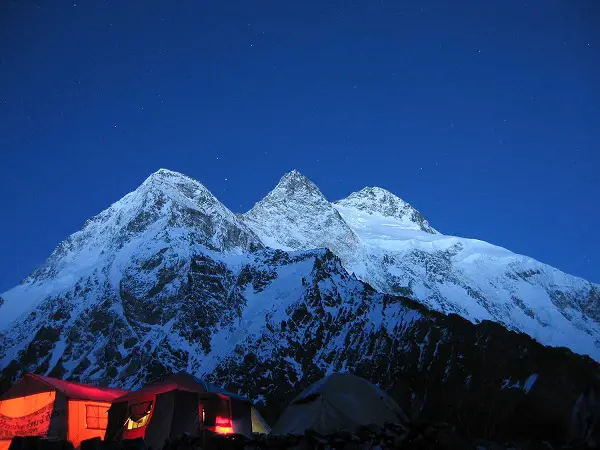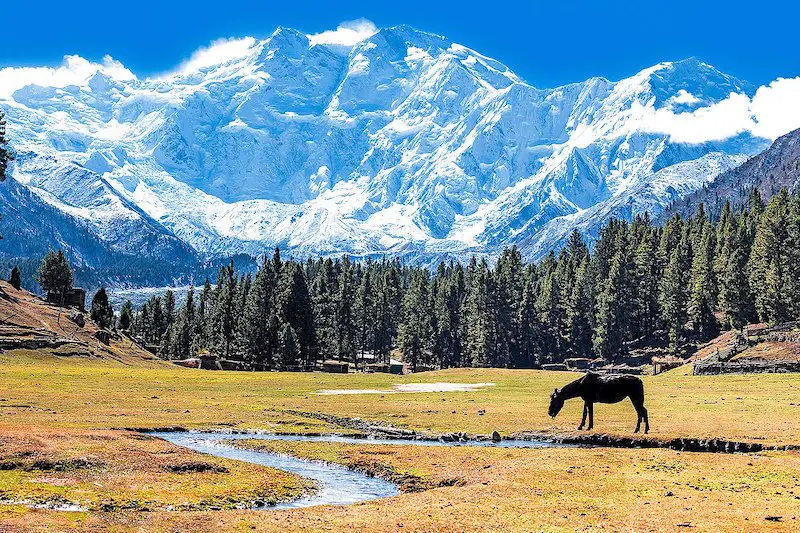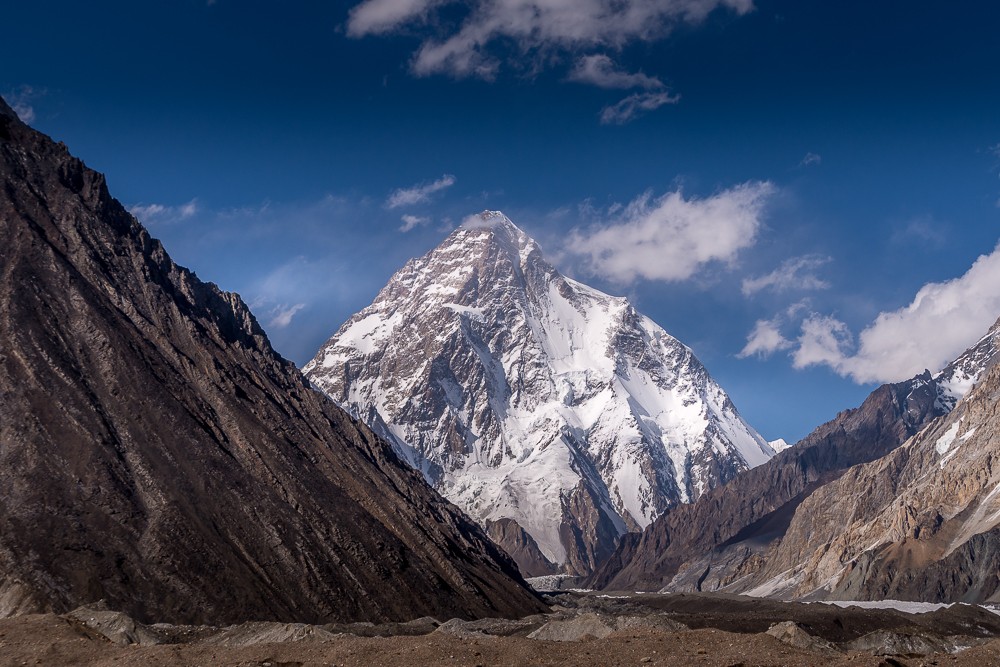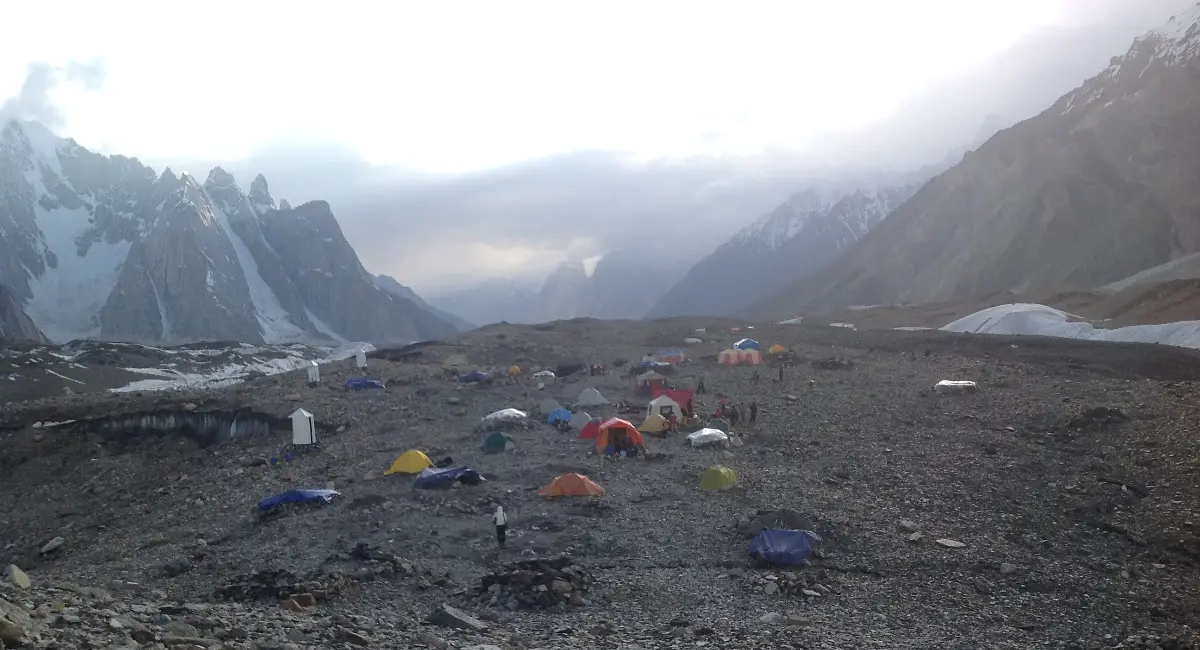Just as the memories of the spring climbing season in the Himalaya begin to fade, the attention of the high-altitude mountaineering community now turns to Pakistan. Following in the footsteps of the Nepalese government, the Pakistani’s are forging ahead with the summer Karakoram climbing season with the hopes of reviving its tourism sector and luring adventurous foreigners to its lofty peaks.
But as we saw in the Himalaya, there is a lot of debate over the best way to proceed. With the pandemic continuing to loom large over most of the planet, and the health of the guides, climbers, porters, and staff clearly at risk, there are many who argue that foreign visitors should just stay at home. Others see this as a necessary first step towards regaining some sense of normalcy. As usual, the truth probably lies somewhere in the middle.

Good News and Bad News in Pakistan
On the pandemic front, there is both good news and bad news out to Pakistan. The good news is that the number of daily cases and deaths due to the COVID virus are trending down. In fact, the number of new cases reached a three-month low over this past weekend, with projections for future infections trending in the right direction.
The bad news is that the Pakistani government has banned visitors from 26 countries, including nearby India. This will of course limit the number of travelers who can arrive in the country, which could result in smaller mountaineering and trekking expeditions. It could also cause an attempts to jumpstart the tourism economy to stall out as well.
The full list of nations that are now on Pakistan’s banned list include: Iran, Bangladesh, Bhutan, Indonesia, Iraq, the Maldives, Nepal, Sri Lanka, the Philippines, Argentina, Brazil, Mexico, South Africa, Tunisia, Bolivia, Chile, Columbia, Costa Rica, Dominican Republic, Ecuador, Namibia, Paraguay, Peru, Trinidad and Tobago and Uruguay.

Ban on Sherpas Lifted
If you look closely at the list of banned countries, Nepal stands out as an important one for the mountaineering community. While local Pakistani climbers and guides have become more prominent on mountains like K2, Nanga Parbat, and Broad Peak, the large commercial teams are still generally led and supported by Sherpa guides. When Nepali citizens were prohibited from entering Pakistan, most Western and Nepali operators immediately cancelled their expeditions.
In an attempt to salvage the climbing season, the Pakistani government reversed its stance on mountain workers. Last week, it was announced that Sherpas coming to work in the Karakoram this year will be allowed provided they adhere to some important regulations. Those regulations include working for a registered tour operator, getting vaccinated prior to arrival, taking COVID test once they’re in country, and adhering to a mandatory ten day quarantine.
Considering the late nature of this shift in policy, it seems unlikely that any of the Western climbing operators will change their minds and proceed with their expeditions. But some of the Nepali companies may still announce plans to bring teams to Pakistan’s 8000 meter peaks.

Smaller Expeditions for Summer 2021
Despite all of the challenges and hassles—which have included numerous cancelled flights, mandatory COVID tests, and limited travel options—there are still some very interesting expeditions to keep an eye on this summer in the Karakoram. For instance, Canadian Ian Wilstead is teaming up with American Graham Zimmerman to attempt the seldom climbed West Ridge on K2.
A commercial expedition organized by a Pakistani guide service called Karakoram Expeditions will also be on K2. It’s led by Mirza Ali, who is amongst the country’s top alpinists. The group will consist of 11 international climbers, with the same number of guides. Some of members of the squad will warm up on Broad Peak as well.
A team of Spanish mountaineers led by Manuel Gonzalez will also attempt Nanga Parbat. They are expected to be the only team in base camp on that mountain. Gonzalez will be joined by Enrique Osiel, Iñigo Delgado, Sergio Carrascoso, and Carlos Santafe, with the goal of ascending the Diamir Face along a route made famous by Reinhold Messner.
Looking Ahead
While the 2021 summer Karakoram climbing season looks like a relatively quiet one, there is certainly hope for the future. The Nepali operator Seven Summit Treks has plans to bring a large team to Nanga Parbat in September and there will likely be several teams on K2 during the winter. That should hopefully pave the way for a return to normalcy in 2022, when the COVID pandemic is more likely to be fading at long last.
Although it seems like Pakistan’s tourism sector will continue to struggle a bit longer, it now looks like there is plenty to get excited for in the months ahead.
- Gear Review: The Xero Scrambler Mid is an Ultralight Hiking Shoe for Spring - March 1, 2023
- Gear Review: Yeti Roadie 48 Wheeled Cooler - August 18, 2022
- Kristin Harila Continues Pursuit of 8000-Meter Speed Record - August 16, 2022
